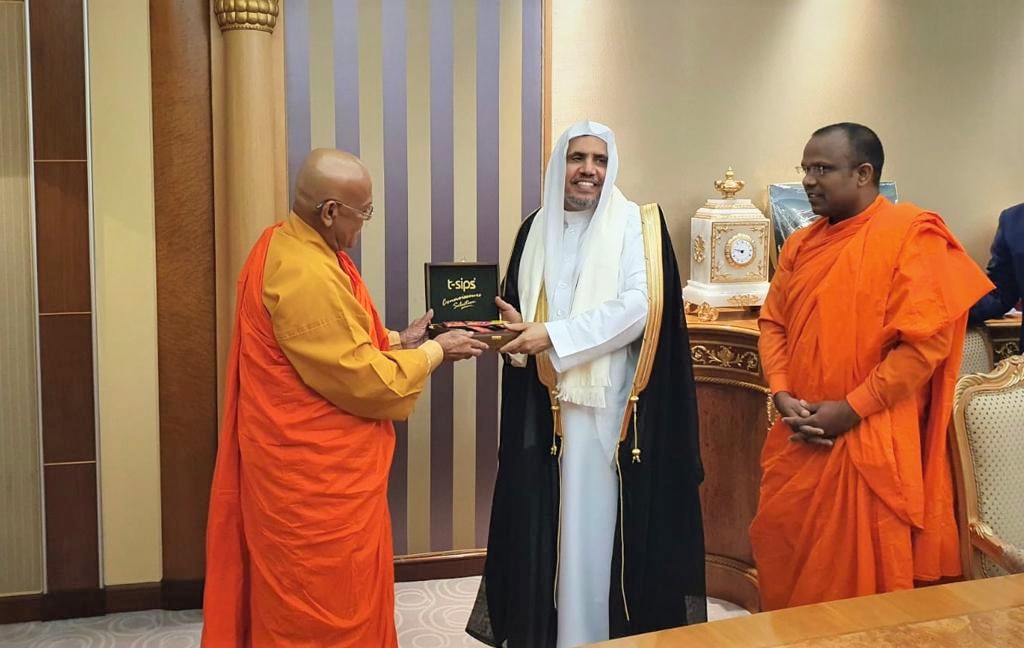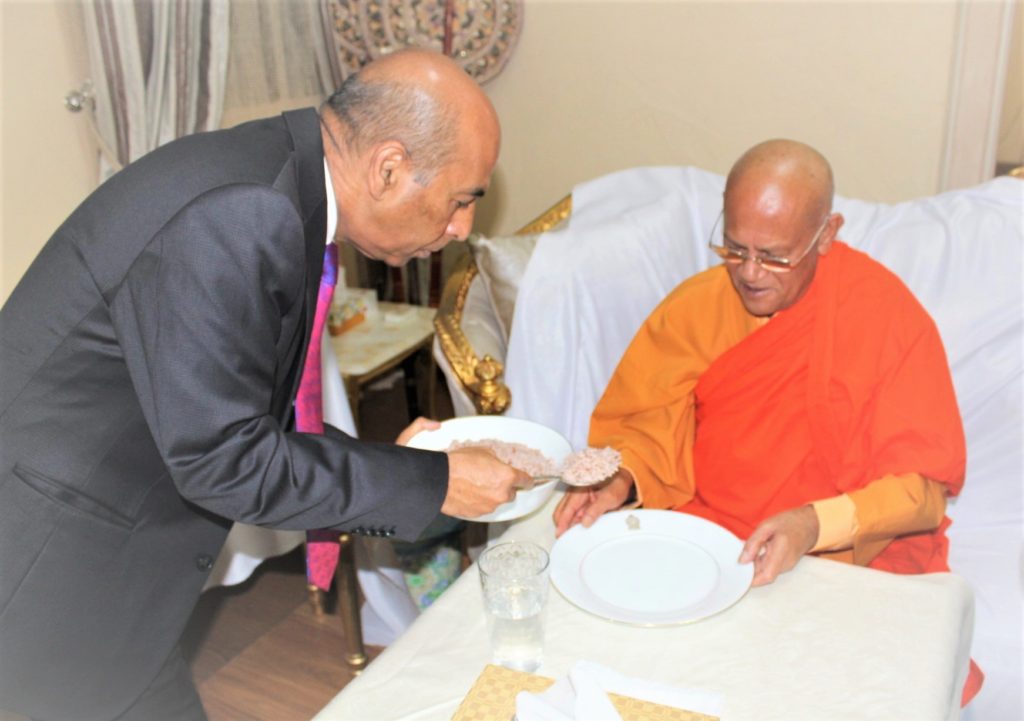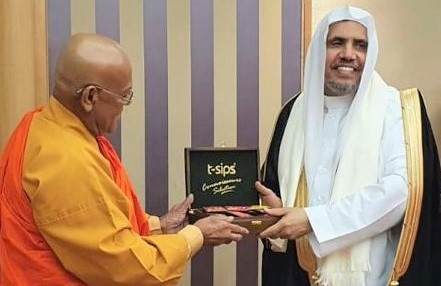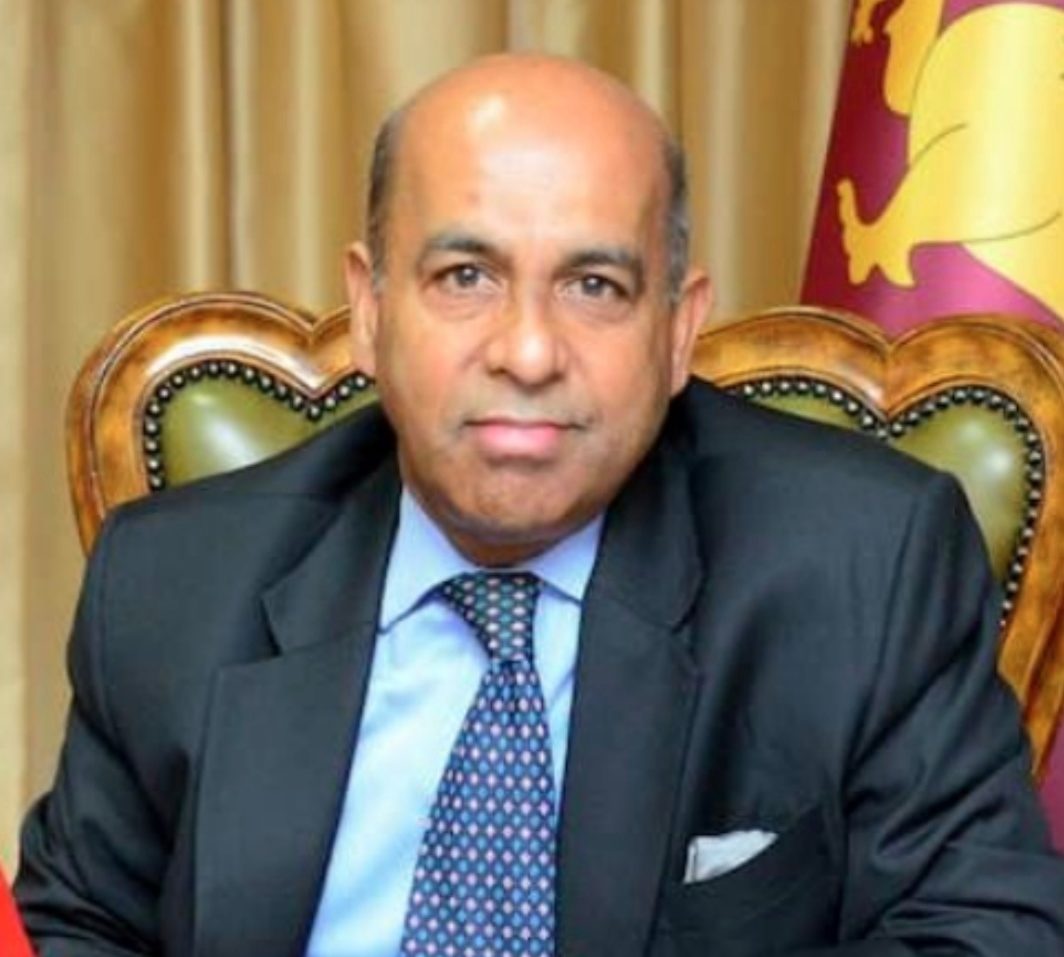Month: May 2022
Celebration of International Tea Day – 21st May 2022
Tea Promotional Video By Sri Lanka Tea Board at following link: Click Here to Watch…..
The observance of an International Tea Day will promote and foster collective actions to implement activities in favor of the sustainable production and consumption of tea and raise awareness of its importance in fighting hunger and poverty.
From UN Resolution adopted by
The General Assembly on 19 December 2019
ARTICLE OF SRI LANKA TEA BOARD ON THE OCCASION OF CELEBRATION OF INTERNATIONAL TEA DAY – 21ST MAY 2022
International Tea Day is a United Nations observance celebrated annually on May 21 to express the economical, biological and physical benefits of tea. It was inaugurated by the General Assembly and essentially replaced the unofficial observance of the same name, which used to be celebrated on December 15 in tea producing countries. The observance of International Tea Day is promoted and facilitated by the UN Food and Agriculture Organization in collaboration with other relevant organizations and stakeholders.
Millions of families in developing and least developed countries owe their livelihood and subsistence to tea. Some of the poorest countries rely on the tea industry as a main source of income and export revenues; due to being a labor-intensive sector, it is the most important provider of jobs for people living in economically disadvantaged and remote areas of the tea producing regions. As one of the major perennial crops, tea plays a significant role in rural development, poverty reduction and food security in developing countries.
Due to all this, the production and processing of tea contributes to the achievement of the sustainable development goals, such as the eradication of extreme poverty, the fight against hunger, the empowerment of women, and the sustainable use of terrestrial ecosystems. Taking this into account, the UN General Assembly designated May 21 as International Tea Day based on the proposal submitted by the FAO-IGG Tea group.
The key goal of International Tea Day is to raise public awareness of the importance of tea for sustainable livelihoods and rural development, as well as the challenges that the tea industry has to face, such as climate change. The observance also aims to popularize tea drinking around the world in order to expand demand and increase per capita consumption.
Tea is the second most used drink in the world after water which states the self-explanatory importance and worth of tea in the world. It is also mentioned in the theme that the basic purpose of World Tea Day is to spread awareness among the people about the financial outcomes of tea in the poor areas of the world which are the major producer of this crop. As the demand for tea is always there but it usually happens that its fair supply and trade cannot be accorded. So these poor areas of Continent Asia cannot find the profitable results of the production of the world’s most consumed beverage.
The significance to celebrate this day is to prompt the Health benefits of Tea drinking, as Tea is Rich in antioxidants and tea drinking may help to reduce the risk of heart disease and initiation and progression of some cancer. Also tea helps to lose weight and hence can be a useful, easily accessible and cheap tool to fight against major health issues like obesity, nausea and slow metabolism.
The first International Tea Day was celebrated in 2020. In this year, the global tea fraternity is going to celebrate the third occasion of International Tea Day proclaiming the theme for this day as “Tea and Fair Trade”. The basic purpose of this theme is to glorify the economical facts of tea, especially the areas where it is grown, are poverty trodden and its fair trade cannot only enhance their resources and access to the international market but can also be helpful in the eradication of poverty.
Sri Lanka Tea Board has released a video on Ceylon tea to celebrate the International Tea Day through Social and Digital Media. The Sri Lanka tea fraternity salutes the brave and courageous workforce in the tea industry who is continuing to produce the golden brew to the satisfaction of tea connoisseurs globally despite the COVID 19 pandemic.
In such a background, the Sri Lankan tea industry wishes to recognize few vital characters and crucial segmentation to pay tribute for the invaluable service and enormous sacrifices made to raise the popularity and perceived quality parameters to stardom:
# The sweat of the toiling workers is our Green Gold which ultimately serves the connoisseur to his or her satisfaction. Accordingly, the tea smallholder sector is a significant contributor to the production and output of Ceylon Tea in Sri Lanka, and across the globe. We are often called the ‘backbone’ of our tea industry and with good reason. Tea smallholders operate in 60% of the total tea land and account for more than 70% of the total tea produced.
# The tea stains on the fingers of the pluckers tell an unknown story which is unlimited in value. This day is a tribute to these angels.
# A great story on uplifting women’s empowerment from birth to death
# Reliability, Consistency and Sustainability is the forte of the Sri Lanka Tea Industry now boasting of a 155 years heritage. These unique pillars have been the success factors of the island nation’s economy for many years.
Address by Most Ven. Banagala Upatissa Thero, President of Mahabodhi Society of Sri Lanka, Chief Sangha Nayaka of Japan, Chief Priest-Lankaji Temple, Japan & Chief Priet-Sanchi Chethiyagiri Viharaya, India delivered at the World Forum for Promoting Common Values Among the Followers of Religions Organized by the Muslim World League held in Riyadh on 11th May 2022.
SINCE THE dawn of mankind, humans have attempted to answer the most complex and perplexing questions of the universe through religious beliefs. Questions such as why are we here? How did we come to be?
Religions worldwide set out a set of moral and ethical guidelines on how one should live and interact with the world. This leads to a vast number of teachings on peace and conflict, how to behave when at war and how to avoid it all together.
Many ancient scriptures and teachings from the Quran and from their prophet Muhammad talk of avoiding violence at all costs.
On the other side of the coin, Buddhism is seen as one of the most peaceful religions in the world. By all accounts it is. The Buddha preached love and kindness and the ending of all suffering.
With Buddhism, there is an emphasis on peace and peaceful living but this comes from a focus on suffering and the ending of all suffering. The Four Nobel Truths are the centre of Buddhism. These truths centre around suffering, the cause of suffering, the end of suffering and how one can end suffering. Within Buddhism, there is a large focus on inner peace or “enlightenment”. Once one reaches enlightenment, you no longer suffer and your aim is to ease the suffering of others by aiding them in their path to enlightenment. The very basis of Buddhist teachings is one of peace. If you wish to end suffering, the most obvious way to do that is to be peaceful.
To learn how Islam strives for peace, you must look to see when it was established and in what political and religious climate. The prophet Muhammad In his thirties, experienced “divine revelations” from God which led to the writing of the Quran. In these teachings, Muhammad said that God, or Allah, wished for peace for his people. These teachings also preached patience and kindness. These teachings were alien to pre-Islamic Arabia.
Muhammad advocated a policy of non-violent resistance and like Buddhism, Islamic teachings, at their core, call for peace and patience. The Holy Quran states ‘Humanity is but a single brotherhood; so, make peace with your brethren.’ The word ‘Islam’ even comes from the word ‘Salam’ meaning ‘peace’.
Today, members and leaders of the Islamic faith actively condemn acts of violence. They speak out against injustices and work together with other faiths in interfaith dialogues to assist the spread of understanding and peace.
In the modern world, Buddhism works with many people and religions in an effort towards peace. Many Organisations of various faiths are connected through Buddhism. They attempt to bring a “revolution of peace” to the world. These organisations have roots leading back to end War and give world peace a chance, where they rallied against the use of nuclear arms. Recite-Nahi Verena Verani
Being a Buddhist Monk, it is my earnest desire to open dialogue among the various faiths and cultures for peaceful co-existence. Explain-Work done in Jaffna
It is safe to say, that the goal for every religion is to reach a state of peace, whether it’s inner peace, or world peace. The radical sects of some religions do not speak for these religions as a whole, and the majority of adherents of these religions are horrified at the things done in the name of, say, Allah and Buddha.
Through the teachings of Muhammad, Muslims are instructed to be patient, to be kind to those of different faiths.
Buddhists have a similar view. They must not cause suffering and should stay away from violence. Much like Muhammad, they preach non-violent resistance.
Many people would be shocked to think of Islam and Buddhism being comparable in any way and yet if you look closely at their teachings, and their efforts towards peace, they are more similar than one may suspect. Recite- Pancha Seela
No Buddhist can hate Gods. They have to practice the Mettabhavana (Friendship) and give their love to all the Gods, devils, demons, and all living beings. He admits all Gods and he gives his love to all. The Buddhists love them all. They are given the merits of the good deeds that he does.
The Buddha was an embodiment of all great virtues. In Him, were the embodiment of the highest morality (Sila), deepest concentration (Samadhi), and penetrative wisdom (Panna) – qualities unsurpassed and unparalleled in human history. These great noble qualities were mentioned in the sacred texts dealing with the discourses of the Buddha.
The following verses, in Pali, relate to the nine intrinsic virtues of the Buddha, which Buddhist devotees recite when they pay homage to the Buddha:
“Itipi So Bhagava Araham Samma-Sambuddho
Vijja-Carana-Sampanno Sugato Lokavidu
Annutarro Purisa Damma-Sarathi Sattha Deva-
Manussanam Buddho Bhagavathi.”
Buddhism is not about worshipping certain God or Goddesses; actually, it’s all about obtaining inner peace and satisfaction. The main purpose of Buddha was simply to show mankind how to avoid chaos and live in harmony with all living creatures. Buddhism is a middle way practice, an equilibrium between self-denial and over-indulgence.
Buddhist philosophy is based on the basic idea of cause and effect, the rule of Karma. According to this law, every intention thought and action has its equal result and consequence. Buddhist disciplined life leads down the path of spirituality in human life self-realization, or what the Buddhists call Nirvana.
The Buddhist philosophy depends upon three jewels, four Noble truths, the eightfold path and the five Precepts.
The eightfold path of Buddhism shows the way out of suffering: The Buddha taught practical ways to end suffering through eight pursuits and all those are based on self-control – right speech, right action, right livelihood, right concentration, right view, right intention, right mindfulness, and right effort.
Buddhist philosophy is really important for world peace.
Buddhist philosophy has a great role in maintaining world peace and harmony.
First ever visit of Buddhist and Hindu Priests from Sri Lanka concludes.
On the invitation extended by Sheikh Dr. Mohammad bin Abdulkarim Al- Issa, Secretary General of the Muslim World League and President of the Organisation of Muslim Scholars to participate at the Forum titled “Promoting Common Values Among the followers of Religions”, organised by the Muslim World League, an International Islamic Non Governmental Organisation based in Mecca, Saudi Arabia meant for religious leaders and senior scholars, a delegation led by the Most Venerable Banagala Upatissa Thero, President of the Mahabodi Society of Sri Lanka and Chief Sangha Nayaka for Japan, Chief Priest–Lankaji Temple, Japan & Chief Priest-Sanchi Chethiyagiri Viharaya, India visited Saudi Arabia from 9th to 13th May 2022. This is the first ever visit to the Kingdom by a Buddhist Priest.
The Most Venerable Banagala Upatissa Thero, addressed the above Forum convened on the 11th May held at the prestigious Ritz Carlton Hotel in Riyadh. In his address Most Ven. Banagala Upatissa Thero focused his attention on the similarity of teaching of Lord Buddha and teaching and practices in the Islamic faith. He stated that “Many people would be shocked to think of Islam and Buddism being comparable in anyway and yet if you look closely at their teachings, and their efforts towards peace, they are more similar than one may suspect”. Making further elaboration on the teaching of Lord Buddha, the Most Venerable Thero said “Buddhist philosophy is really important for world peace. The mantras and philosophy are valid and useful in everyone’s life not only for Buddhists”.
During his stay in Riyadh, the Venerable Thero also spoke to the selected Sri Lankan community members on religious tolerance and understanding. He stressed the importance of positive contribution by the Sri Lankans living in the Kingdom at a time Sri Lanka faces a critical economic situation.
The Most Venerable Thero also took part in the Vesak Celebration at the embassy premises on the 13th May organized by the Sri Lanka Cultural Forum together with Sri Lankan community in Riyadh which includes Bodhi Pooja, and Cultural performance by the students of the Daham Pasala. The Most Venerable monk hailed the Sri Lankan community in Riyadh for scaling down the Vasak celebrations this time and diverting the resources meant for the celebrations for the needy people in Sri Lanka.
He also took part in the Dhana (Alms giving) organized at the Embassy on the 12th May.
Kurukkal Ramachandra Iyer of the Hindu Religious Department and Ven. Koswatte Palitha Thero also took part in the forum. It is also the first time a Hindu Priest from Sri Lanka visited the Kingdom.








Eid Message of HE the Ambassador
It gives me immense pleasure to extend my sincere greetings and heartfelt felicitations to The Custodian of the Two Holy Mosques His Majesty King Salman bin Abdulaziz Al Saud , King of Saudi Arabia, Crown Prince His Royal Highness Mohammed bin Salman Al Saud and all the brothers and sisters who celebrate the Eid Ul Fithr in the Kingdom and all over the world.
Eid Mubarak. May the mercy , blessings and peace of Almighty Allah be with all of us during this auspicious occasion and beyond.
This is my first Eid in the Kingdom of Saudi Arabia after I assumed office as the Sri Lanka’s Ambassador to the Kingdom. I am truly feel happy that we are able to celebrate this festival in this blessed land.
The Kingdom is the home of over 150,000 Sri Lankans. While extending my sincere greetings to all the Sri Lankans living in Saudi Arabia I also take this opportunity to extend my sincere appreciation for their contribution for the economic enhancement of their motherland. I encourage them to continue their contribution at this critical time .
The Sri Lankan community in Riyadh had pruned their Annual Ramadan Celebrations and diverted the resources for the benefit of the needy in Sri Lanka. I encourage the others also to follow this exemplary gesture.
Once again Eid Mubarak
P M Amza
Ambassador of Sri Lanka to the Kingdom of Saudi Arabia











